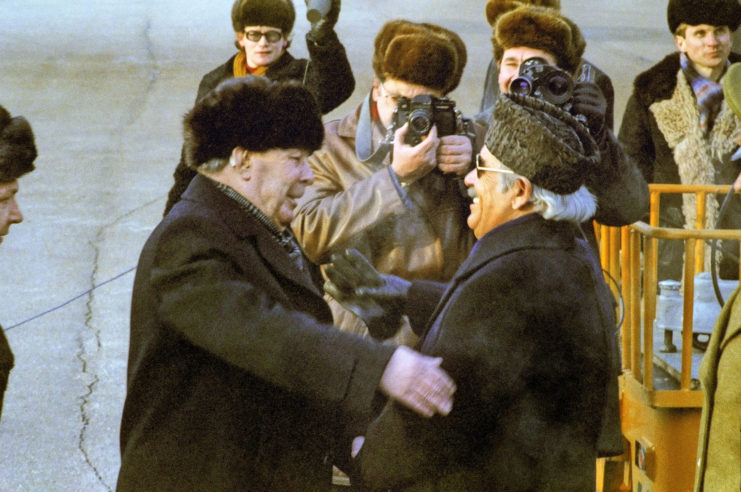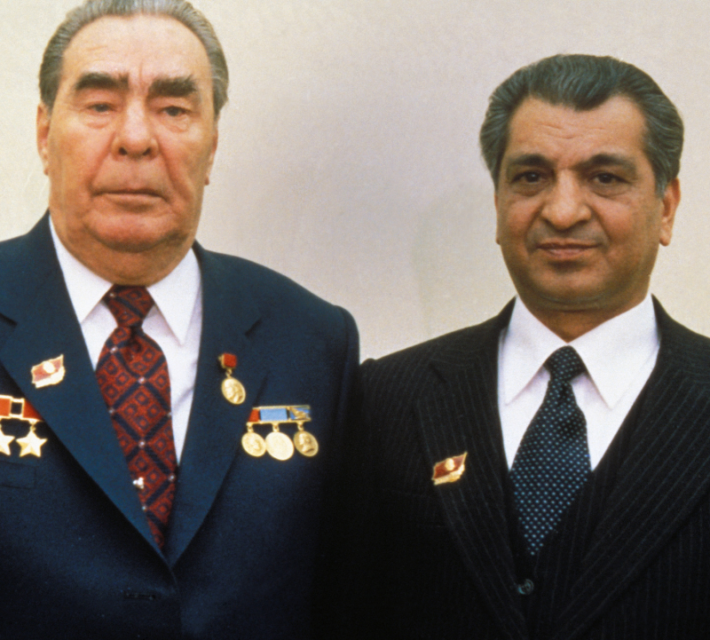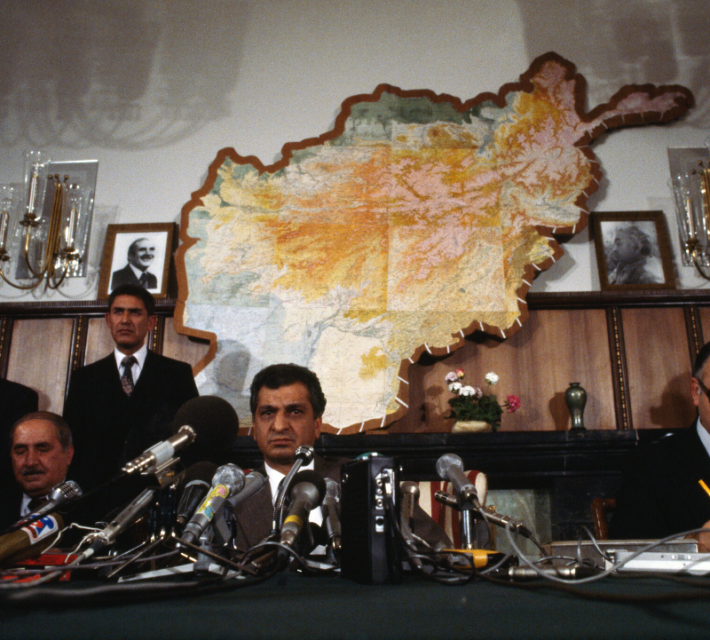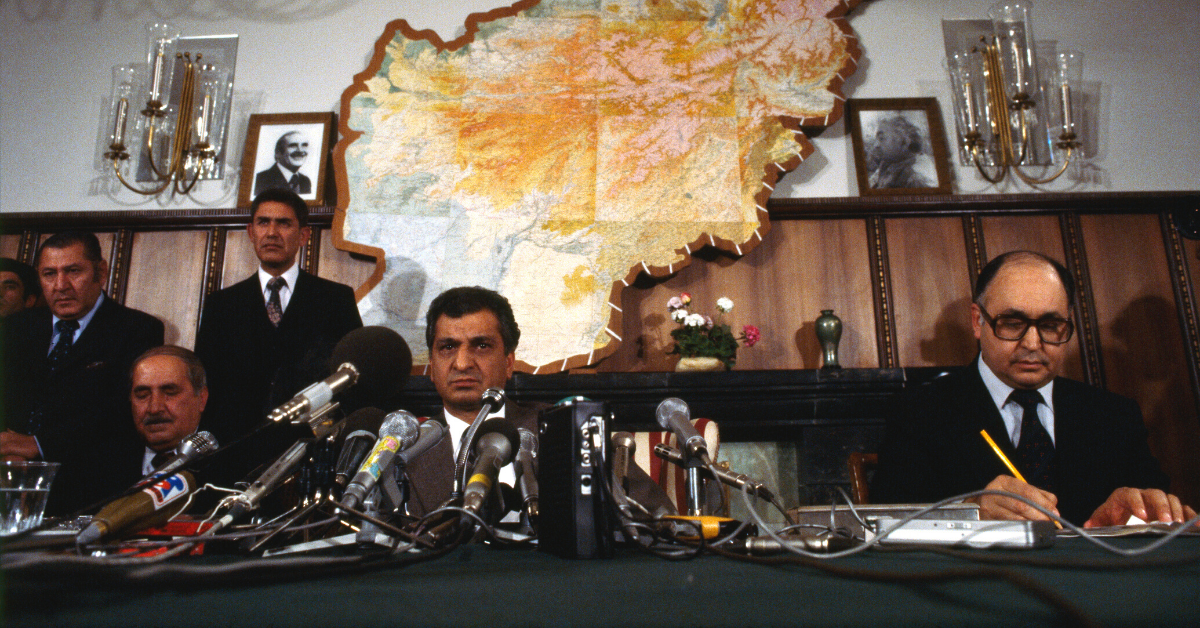Files from the Czechoslovakian secret police the StB (Štátna bezpečnosť) reveal how the country helped hide and protect Afghan ambassador Babrak Karmal before putting him in the position of President of Afghanistan.
Karmal was named Afghanistan’s new ambassador in Czechoslovakia in July 1978, after a communist coup seized power in the nation. Karmal was placed as the deputy head of the People’s Democratic Party of Afghanistan (PDPA).
This wouldn’t last long, however, as the PDPA split into two rival parties, the Khalq, headed by Noor Mohammad Taraki, and Parcham, headed by Karmal.

Taraki began a Stalin-like purge of the Parcham, imprisoning and executing many of its members, while exiling others as ambassadors. This was Karmal’s fate, becoming the ambassador to Czechoslovakia. Soon after arriving in his new European setting, Karmal began plotting to eventually return and overthrow Taraki, but this plan was soon discovered.
Karmal goes into hiding
With his intentions known to Afghanistan, Babrak Karmal was ordered to return, which most likely would have meant imprisonment or execution. Fearing for his life, he refused and instead sought help from the Czechoslovakian government.
This brought him to the attention of the country’s secret police, the StB. An StB file states that “he stated that he was at risk of arrest and possible execution and that he wanted to ask the Czechoslovak authorities for political asylum.”
This left the nation in a difficult position, as they were friendly with Taraki’s government, who were demanding Karmal’s extradition. Prague reached out to Moscow for advice and were given the go-ahead to provide Karmal with refuge and protection.
Czechoslovakia explained the reason for not extraditing him was because he “suffers from heart problems that require long-term treatment” and “we could not refuse Karmal’s request.” The Afghan government knew this was untrue.
To protect Karmal and his family, consisting of his wife and four children, they were taken to a secluded hunting lodge near Kraslice in late 1978, close to the Ore Mountains. The StB was always nearby, monitoring the family’s activities, and those of strangers in the area.
Kraslice, a Czech town located right next to the German border from UrbanHell
The StB had received information from the embassy in Kabul, Afghanistan, that three people had been dispatched to Czechoslovakia to find and kill Karmal. The files also said that “the new Afghan ambassador to Czechoslovakia also supposedly received information about the operation and he was expected to provide financial and other support.”
After this, the StB immediately ramped up security around Karmal, not only in person at the lodge, but also by checking every Afghan entering the country. They also sent false postcards written by Karmal containing information that he was leaving Czechoslovakia, with the knowledge these would be seen by Afghanistan’s embassy.
It was now January 1979, and Karmal’s location had been compromised, potentially by intercepted phone calls. In response, the family was quickly informed they were going to be relocated, this time to a place 600 kilometers away, to a spa resort in Sklene Teplice.
Meanwhile, the StB had been trying to obtain information on Karmal’s would-be assassins. Some intelligence came after the relocation, when they discovered one of the three assassins was called Kalekani, and was “aged around 40, tall, with dark hair and skin, and of unpleasant behavior.”
At this location, the family was much less active, due to the greater risk of being compromised.
As the spa was a facility used by nearby factory workers, the foreign and reclusive family began to raise some suspicions. On top of this, Karmal had run out of money and fallen behind on his bills at the spa and wished to leave.
He also contacted the Soviet Union, denouncing Taraki’s government and suggesting that Moscow should help the situation, with him as the country’s president, which he said would set Afghanistan straight.

From fugitive to president
In mid-1979, the family prepared to move to a new location in the city of Banska Bystrica. By this time, the three assassins had been dealt with, and the family was much more secure. Later that year in December, Karmal, a man who had spent a year in hiding, appeared globally on television screens.
He had left Czechoslovakia at an unknown time and had been in discussions with the Soviet Union about the situation in Afghanistan.

On December 27, 1979, the Soviet Union invaded Afghanistan, using KGB and special forces to assassinate President Hafizullah Amin. Just a few months earlier, Amin had removed Taraki in a similar fashion. The Soviet Union placed Karmal as president of the nation, who got to work undoing some of the damage done by the previous governments, but enacted purges of his own and relied on the Soviet Union to keep his government in power.
The Soviets sent hundreds of thousands of troops into Afghanistan, beginning a difficult war that would last nine years, and saw an estimated 2 million Afghans killed. In opposition to the communist take-over, the U.S. began funding Islamist groups like the mujahedin, who fought the Soviets. The Soviets would eventually remove Karmal from power in 1986, replacing him with Mohammad Najibullah.
More from us: USS Constitution Sails Again After More Than A Year
In 1989, the Soviets pulled out of Afghanistan, leaving the country in an unstable position. Karmal would remain active in the nation’s politics for a while after, before settling with his family in Moscow. He died in 1996 of liver cancer, at age 67.
